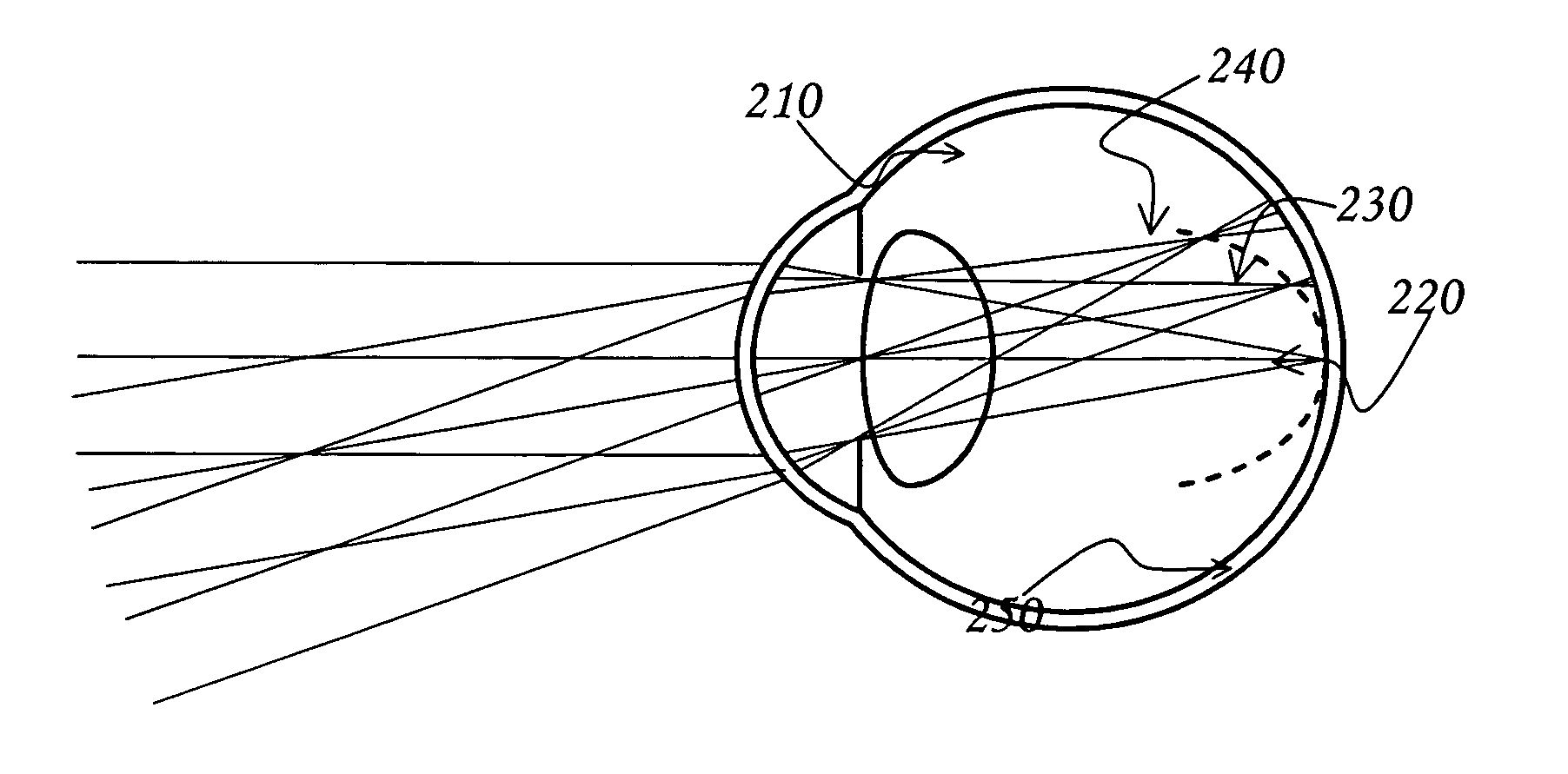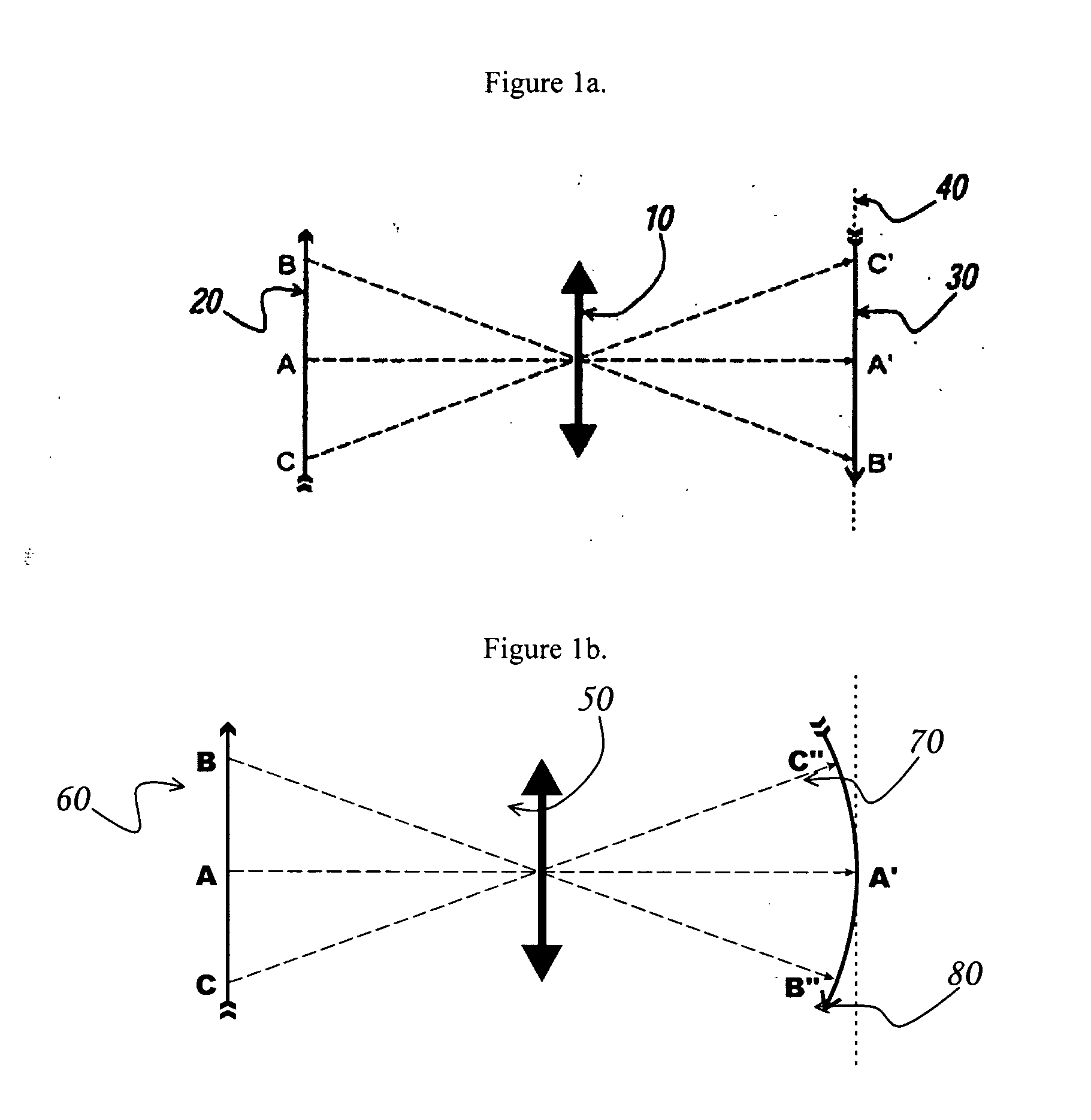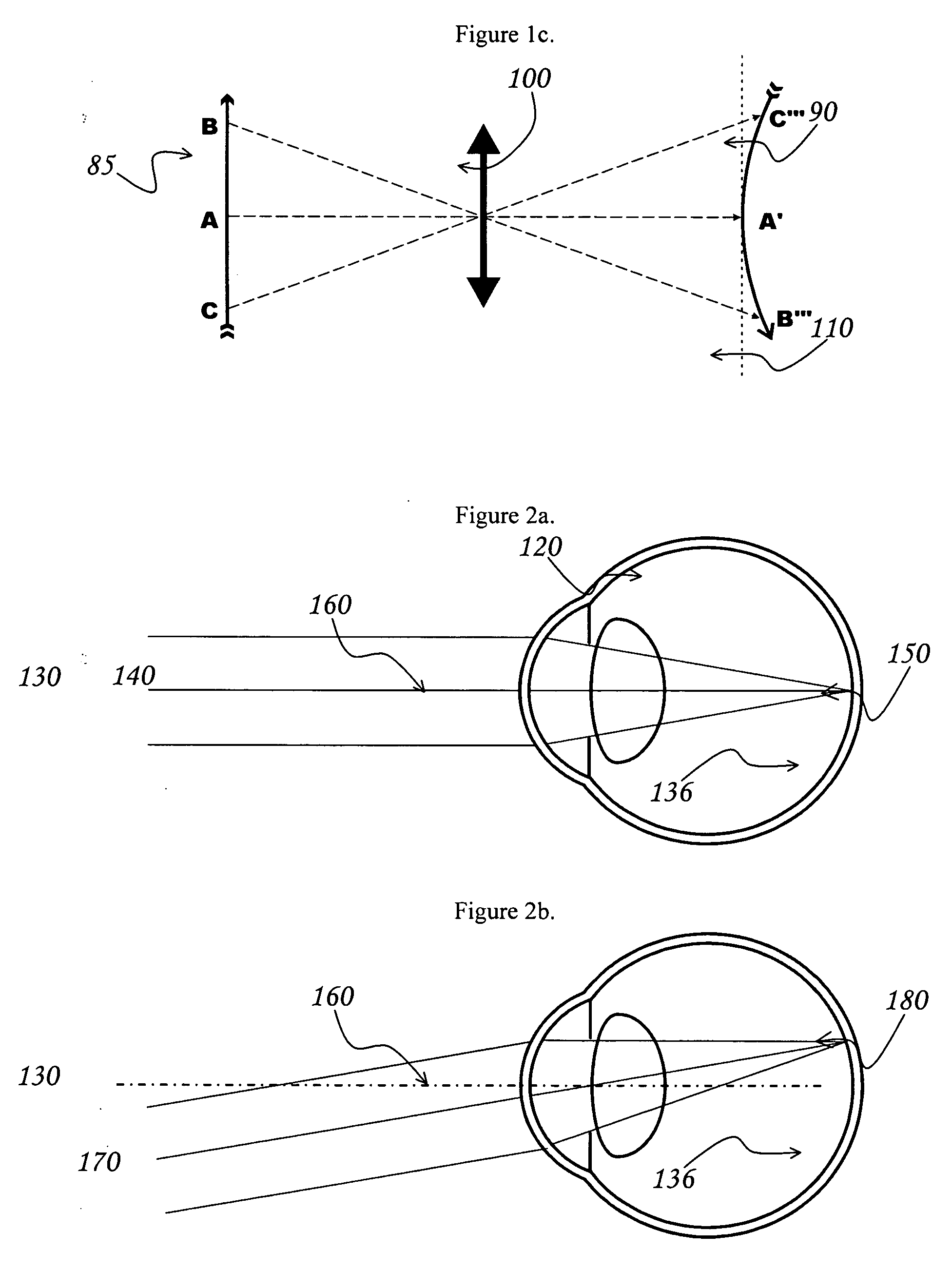Methods and apparatuses for altering relative curvature of field and positions of peripheral, off-axis focal positions
- Summary
- Abstract
- Description
- Claims
- Application Information
AI Technical Summary
Benefits of technology
Problems solved by technology
Method used
Image
Examples
example 1
[0101] Example 1 describes an experiment addressing the question of whether the fovea is essential for normal emmetropization (i.e. normal eye growth and refractive development).
[0102] The fovea and most of the peri-fovea (i.e. the region of the retina immediately surrounding the fovea) were ablated using either an argon laser or a frequency-doubled YAG laser in one eye of five infant monkeys (average age 19 days). While a YAG laser was used, it is understood that any laser able to achieve the requisite level of ablation could have been used in this or subsequent Examples where a laser was used. The monkeys were subsequently allowed unrestricted visual experience. Refractive development was monitored for over one year in three animals and for over 200 days in the other two monkeys (i.e. through the key periods of the normal emmetropization process for young monkeys).
[0103] One would have expected differences in the rate and / or effectiveness of the emmetropization process between t...
example 2
[0105] This experiment addressed the question of whether an intact fovea is essential for the development of form deprivation myopia, and whether the periphery in isolation can produce abnormal ocular growth in response to a myopia-genic stimulus. At about three weeks of age, the fovea and most of the peri-fovea in one eye of nine infant monkeys were ablated using an argon laser. Subsequently, monocular form deprivation was induced in the laser-ablated eye using a diffuser spectacle lens.
[0106] For all of the six monkeys that completed the rearing period (basically from three weeks to five months of age), the treated (i.e. laser-ablated and form deprived) eyes became longer and more myopic than their fellow eyes. FIGS. 14a to 14c show representative refractive error data for three animals (experiment code FID, EDE, JAC). FIG. 14d shows the difference between eyes for all six monkeys. In FIG. 14d, the results for each individual animal is denoted by a different black symbol—square, ...
example 3
[0108] This experiment considered whether an intact periphery is essential for normal emmetropization.
[0109] In nine monkeys, at about three weeks of age, the mid- to far-peripheral retina of one eye was ablated with a frequency-doubled YAG laser. For six of these treated monkeys, the ablations extended from about the temporal vascular arcades, all the way to the ora serrata (i.e. the most peripheral limit of the retina). For the other three monkeys, the ablations extended from the vascular arcades to the equator. Subsequently all of these animals were allowed unrestricted vision.
[0110] Many of the animals showed initial hyperopic shifts in refractive error (sometimes quite significant) but almost all animals developed balanced refractive errors shortly after the laser procedure (i.e. both eyes ended up with the same refractive error despite big differences between eyes in lens dimensions and axial length). However, in every case the treated eyes eventually started to drift in the...
PUM
 Login to View More
Login to View More Abstract
Description
Claims
Application Information
 Login to View More
Login to View More - R&D
- Intellectual Property
- Life Sciences
- Materials
- Tech Scout
- Unparalleled Data Quality
- Higher Quality Content
- 60% Fewer Hallucinations
Browse by: Latest US Patents, China's latest patents, Technical Efficacy Thesaurus, Application Domain, Technology Topic, Popular Technical Reports.
© 2025 PatSnap. All rights reserved.Legal|Privacy policy|Modern Slavery Act Transparency Statement|Sitemap|About US| Contact US: help@patsnap.com



